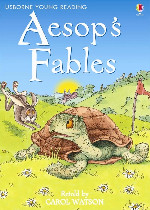
Aesop was a Greek storyteller born in approximately 620 BCE. Tradition says he was born as a slave, but developed a real talent for fables that were used to teach truths in a simple, understandable way. While Aesop was revered for his abilities, it is almost certain that many of the fables attributed to him were actually written by countless people over the ages. The fame garnered by Aesop is such that some scholars question whether he was a real person at all. (Presumably, a slave in ancient Greece would have been hard-pressed to attain the fame that Aesop did.) Be that as it may, Aesop is referred to by ancient luminaries such as Aristotle, Herodotus, and Plutarch. His fables (or those attributed to him) have been translated around the world and are the substance of numerous stories, poems, and children's books.
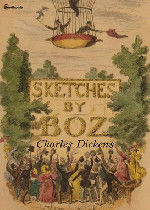
Sketches by "Boz," Illustrative of Every-day Life and Every-day People (commonly known as Sketches by Boz) is a collection of short pieces Charles Dickens originally published in various newspapers and other periodicals between 1833 and 1836. They were re-issued in book form, under their current title, in February and August 1836, with illustrations by George Cruikshank. The first complete one volume edition appeared in 1839. The 56 sketches concern London scenes and people, and the whole work is divided into four sections: "Our Parish", "Scenes", "Characters" and "Tales". The material in the first three sections consists of non-narrative pen-portraits, but the last section comprises fictional stories.
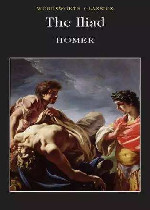
"The Iliad" is a classical epic poem about the events during the last year of the Trojan War and the fall of Troy. The tale revolves around the Greek warrior Achilles, and his anger toward the king of Mycenae, Agamemnon. While the poem shows evidence of a long oral tradition and thus most likely multiple authors, the ancient Greek poet Homer is generally attributed as its author. "The Iliad", which is thought to be the oldest extant work of literature in the ancient Greek language, is considered one of the most important literary works of classical antiquity. Presented here in this edition is the prose translation of Samuel Butler.
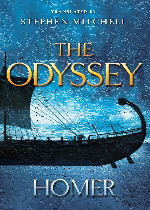
The Odyssey (/ˈɒdəsi/; Greek: Ὀδύσσεια Odýsseia, pronounced [o.dýs.sej.ja] in Classical Attic) is one of two major ancient Greek epic poems attributed to Homer. It is, in part, a sequel to the Iliad, the other work ascribed to Homer. The Odyssey is fundamental to the modern Western canon; it is the second-oldest extant work of Western literature, while the Iliad is the oldest. Scholars believe the Odyssey was composed near the end of the 8th century BC, somewhere in Ionia, the Greek coastal region of Anatolia.

The Uncommercial Traveller(不做生意的旅行者) 立即阅读
The Uncommercial Traveller is a collection of literary sketches and reminiscences written by Charles Dickens, published in 1860-1861. In 1859 Dickens founded a new journal called All the Year Round and the Uncommercial Traveller articles would be among his main contributions. He seems to have chosen the title and persona of the Uncommercial Traveller as a result of a speech he gave on 22 December 1859 to the Commercial Travellers' School London in his role as honorary chairman and treasurer. The persona sits well with a writer who liked to travel, not only as a tourist, but also to research and report what he found visiting Europe, America and giving book readings throughout Britain.
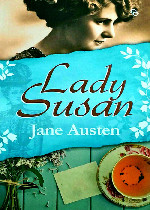
Lady Susan is a short epistolary novel by Jane Austen, possibly written in 1794 but not published until 1871. This early complete work, which the author never submitted for publication, describes the schemes of the title character. Lady Susan Vernon, a beautiful and charming recent widow, visits her brother- and sister-in-law, Charles and Catherine Vernon, with little advance notice at Churchill, their country residence.
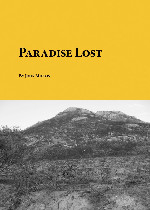
Paradise Lost, epic poem in blank verse, one of the late works by John Milton, originally issued in 10 books in 1667 and, with Books 7 and 10 each split into two parts, published in 12 books in the second edition of 1674. Many scholars consider Paradise Lost to be one of the greatest poems in the English language. It tells the biblical story of the fall from grace of Adam and Eve (and, by extension, all humanity) in language that is a supreme achievement of rhythm and sound. The 12-book structure, the technique of beginning in medias res (in the middle of the story), the invocation of the muse, and the use of the epic question are all classically inspired. The subject matter, however, is distinctly Christian.
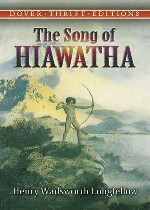
The Song of Hiawatha(海华沙之歌) 立即阅读
The Song of Hiawatha is based on the legends and stories of many North American Indian tribes, but especially those of the Ojibway Indians of northern Michigan, Wisconsin, and Minnesota. They were collected by Henry Rowe Schoolcraft, the reknowned historian, pioneer explorer, and geologist. He was superintendent of Indian affairs for Michigan from 1836 to 1841. Schoolcraft married Jane, O-bah-bahm-wawa-ge-zhe-go-qua (The Woman of the Sound Which the Stars Make Rushing Through the Sky), Johnston. Jane was a daughter of John Johnston, an early Irish fur trader, and O-shau-gus-coday-way-qua (The Woman of the Green Prairie), who was a daughter of Waub-o-jeeg (The White Fisher), who was Chief of the Ojibway tribe at La Pointe, Wisconsin.
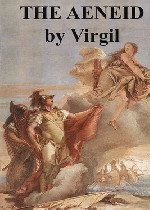
“The Aeneid” is considered by some to be one of the most important epic poems of all time. The story is as much one of the great epic hero, Aeneas, as it is of the foundation of the Roman Empire. Aeneas, a Trojan Prince who escapes after the fall of troy, travels to Italy to lay the foundations for what would become the great Roman Empire. Virgil’s “Aeneid” is a story of great adventure, war, love, and of the exploits of an epic hero. In the work Virgil makes his commentary on the state of Rome during the Rule of Augustus. It was a time that had been previously ravaged by civil wars and with the reign of Augustus order and peace had begun to be restored. That order had a price though. Many of the freedoms of the old Roman Republic had been lost under the new Imperialistic Rome. This loss of freedom and the debate over the virtues of a Roman Republic versus an Imperialistic Rome was central to Virgil’s time and is interwoven throughout the poetic narrative of “The Aeneid.” Virgil’s work forms the historical foundation for the argument of the empire over the republic as the best form of government. This edition is translated into English verse by John Dryden, includes an introduction by Harry Burton, and is printed on premium acid-free paper.
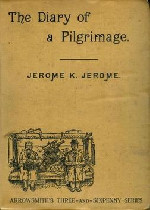
Diary of a Pilgrimage(朝圣路日记) 立即阅读
Diary of a Pilgrimage is a novel by Jerome K. Jerome published in 1891. It tells of a trip undertaken by Jerome and his friend "B" to see the Oberammergau Passion Play in Germany. They travel by train from London Victoria to Dover and have a rough overnight crossing of the Channel to Ostend and thence by train to Cologne where they spend a night in a hotel. The following day they visit Cologne Cathedral before catching the train to Munich, travelling alongside the Rhine. They spend Sunday in Munich where Jerome practices his German before catching a train to Oberau and then a carriage to Oberammergau to see the play. They return via Heidelberg.